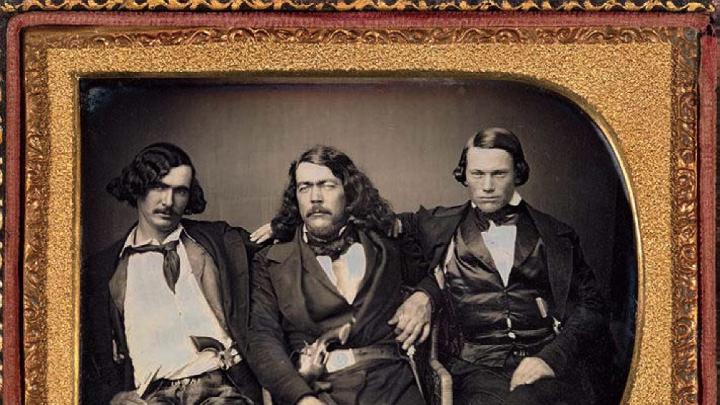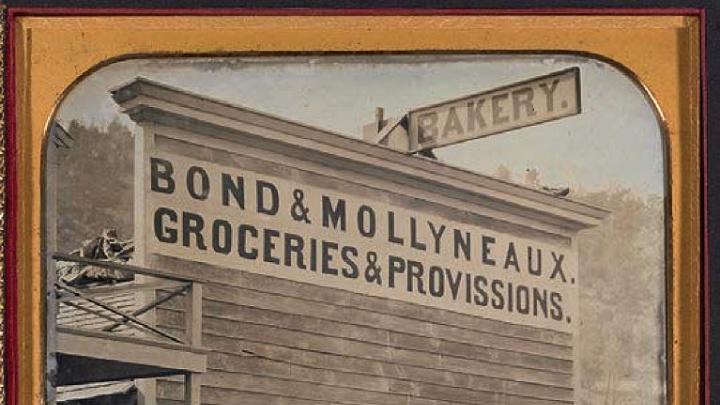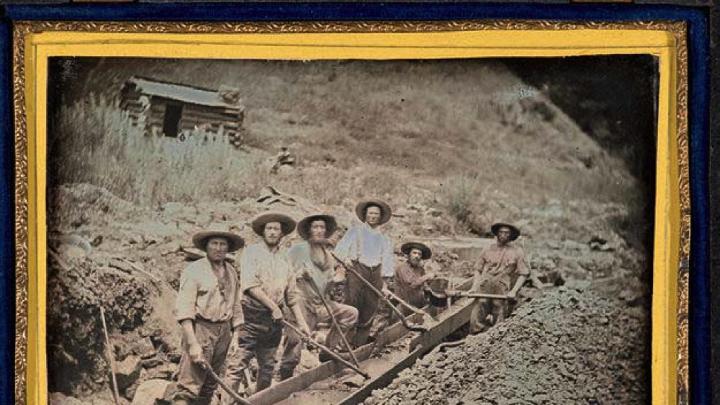The 1848 discovery of gold at Sutter’s Mill launched the dreams and journeys of thousands of people who migrated west to cash in, daguerreotypists among them. “Gold Rush: Daguerreotypes of Early California” (at press time scheduled to be on display at the Peabody Essex Museum through July 12) captures this quintessential era of American history. It was actually the first major American event captured by the early photographic medium, and the real-life images lent credence to rumors of legendary motherlodes. Nearly a hundred images on display reflect untold stories of families and laborers, early mining technology, and the rapid rise of cities, like San Francisco, and smaller “wild West” frontier communities, built around fortune-seeking. “The California Gold Rush was a gamble, and the vast majority were not going to come out rich because of it,” notes Stephanie Tung, associate curator of exhibitions and research. “What we know of the Gold Rush is a mix of both reality and myth.”
Staff Pick: Gold Rush Days



You might also like
Breaking Bread
Alexander Heffner ’12 plumbs the state of democracy.
Reading the Winds
Thai sailor Sophia Montgomery competes in the Olympics.
Chinese Trade Dragons
How Will China’s Rapid Growth in the Clean Technology Industry Reshape U.S.-China Policy?
Most popular
More to explore
Harvard Philosophy Professor Alison Simmons on "Being a Minded Thing"
A philosopher on perception, the canon, and being “a minded thing”







